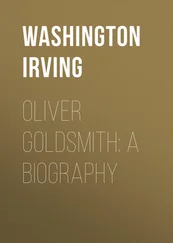Washington Irving - Life of George Washington — Volume 01
Здесь есть возможность читать онлайн «Washington Irving - Life of George Washington — Volume 01» — ознакомительный отрывок электронной книги совершенно бесплатно, а после прочтения отрывка купить полную версию. В некоторых случаях можно слушать аудио, скачать через торрент в формате fb2 и присутствует краткое содержание. Жанр: foreign_antique, foreign_prose, на английском языке. Описание произведения, (предисловие) а так же отзывы посетителей доступны на портале библиотеки ЛибКат.
- Название:Life of George Washington — Volume 01
- Автор:
- Жанр:
- Год:неизвестен
- ISBN:нет данных
- Рейтинг книги:3 / 5. Голосов: 1
-
Избранное:Добавить в избранное
- Отзывы:
-
Ваша оценка:
- 60
- 1
- 2
- 3
- 4
- 5
Life of George Washington — Volume 01: краткое содержание, описание и аннотация
Предлагаем к чтению аннотацию, описание, краткое содержание или предисловие (зависит от того, что написал сам автор книги «Life of George Washington — Volume 01»). Если вы не нашли необходимую информацию о книге — напишите в комментариях, мы постараемся отыскать её.
Life of George Washington — Volume 01 — читать онлайн ознакомительный отрывок
Ниже представлен текст книги, разбитый по страницам. Система сохранения места последней прочитанной страницы, позволяет с удобством читать онлайн бесплатно книгу «Life of George Washington — Volume 01», без необходимости каждый раз заново искать на чём Вы остановились. Поставьте закладку, и сможете в любой момент перейти на страницу, на которой закончили чтение.
Интервал:
Закладка:
"I made it my particular care," adds he, "to receive Mr. Washington with, a distinction suitable to your dignity, as well as his own quality and great merit. I flatter myself that he will do me this justice before you, sir, and that he will signify to you, in the manner I do myself, the profound respect with which I am, sir," &c. [Footnote: London Mag., June, 1754.]
This soldier-like and punctilious letter of the chevalier was considered evasive, and only intended to gain time. The information given by Washington of what he had observed on the frontier convinced Governor Dinwiddie and his council that the French were preparing to descend the Ohio in the spring, and take military possession of the country. Washington's journal was printed, and widely promulgated throughout the colonies and England, and awakened the nation to a sense of the impending danger, and the necessity of prompt measures to anticipate the French movements.
Captain Trent was despatched to the frontier, commissioned to raise a company of one hundred men, march with all speed to the Fork of the Ohio, and finish as soon as possible the fort commenced there by the Ohio Company. He was enjoined to act only on the defensive, but to capture or destroy whoever should oppose the construction of the works, or disturb the settlements. The choice of Captain Trent for this service, notwithstanding his late inefficient expedition, was probably owing to his being brother-in-law to George Croghan, who had grown to be quite a personage of consequence on the frontier, where he had an establishment or trading-house, and was supposed to have great influence among the western tribes, so as to be able at any time to persuade many of them to take up the hatchet.
Washington was empowered to raise a company of like force at Alexandria; to procure and forward munitions and supplies for the projected fort at the Fork, and ultimately to have command of both companies. When on the frontier he was to take council of George Croghan and Andrew Montour the interpreter, in all matters relating to the Indians, they being esteemed perfect oracles in that department.
Governor Dinwiddie in the mean time called upon the governors of the other provinces to make common cause against the foe; he endeavored, also, to effect alliances with the Indian tribes of the south, the Catawbas and Cherokees, by way of counterbalancing the Chippewas and Ottawas, who were devoted to the French.
The colonies, however, felt as yet too much like isolated territories; the spirit of union was wanting. Some pleaded a want of military funds; some questioned the justice of the cause; some declined taking any hostile step that might involve them in a war, unless they should have direct orders from the crown.
Dinwiddie convened the House of Burgesses to devise measures for the public security. Here his high idea of prerogative and of gubernatorial dignity met with a grievous countercheck from the dawning spirit of independence. High as were the powers vested in the colonial government of Virginia, of which, though but lieutenant-governor, he had the actual control; they were counterbalanced by the power inherent in the people, growing out of their situation and circumstances, and acting through their representatives.
There was no turbulent factious opposition to government in Virginia; no "fierce democracy," the rank growth of crowded cities, and a fermenting populace; but there was the independence of men, living apart in patriarchal style on their own rural domains; surrounded by their families, dependants and slaves, among whom their will was law, — and there was the individuality in character and action of men prone to nurture peculiar notions and habits of thinking, in the thoughtful solitariness of country life.
When Dinwiddie propounded his scheme of operations on the Ohio, some of the burgesses had the hardihood to doubt the claims of the king to the disputed territory; a doubt which the governor reprobated as savoring strongly of a most disloyal French spirit; he fired, as he says, at the thought "that an English legislature should presume to doubt the right of his majesty to the interior parts of this continent, the back part of his dominions!"
Others demurred to any grant of means for military purposes which might be construed into an act of hostility. To meet this scruple it was suggested that the grant might be made for the purpose of encouraging and protecting all settlers on the waters of the Mississippi. And under this specious plea ten thousand pounds were grudgingly voted; but even this moderate sum was not put at the absolute disposition of the governor. A committee was appointed with whom he was to confer as to its appropriation.
This precaution Dinwiddie considered an insulting invasion of the right he possessed as governor to control the purse as well as the sword; and he complained bitterly of the assembly, as deeply tinctured with a republican way of thinking, and disposed to encroach on the prerogative of the crown, "which he feared would render them more and more difficult to be brought to order ."
Ways and means being provided, Governor Dinwiddie augmented the number of troops to be enlisted to three hundred, divided into six companies. The command of the whole, as before, was offered to Washington, but he shrank from it, as a charge too great for his youth and inexperience. It was given, therefore, to Colonel Joshua Fry, an English gentleman of worth and education, and Washington was made second in command, with the rank of lieutenant-colonel.
The recruiting, at first, went on slowly. Those who offered to enlist, says Washington, were for the most part loose idle persons without house or home, some without shoes or stockings, some shirtless, and many without coat or waistcoat.
He was young in the recruiting service, or he would have known that such is generally the stuff of which armies are made. In this country especially it has always been difficult to enlist the active yeomanry by holding out merely the pay of a soldier. The means of subsistence are too easily obtained by the industrious, for them to give up home and personal independence for a mere daily support. Some may be tempted by a love of adventure; but in general, they require some prospect of ultimate advantage that may "better their condition."
Governor Dinwiddie became sensible of this, and resorted to an expedient rising out of the natural resources of the country, which has since been frequently adopted, and always with efficacy. He proclaimed a bounty of two hundred thousand acres of land on the Ohio River, to be divided among the officers and soldiers who should engage in this expedition; one thousand to be laid off contiguous to the fort at the fork, for the use of the garrison. This was a tempting bait to the sons of farmers, who readily enlisted in the hope of having, at the end of a short campaign, a snug farm of their own in this land of promise.
It was a more difficult matter to get officers than soldiers. Very few of those appointed made their appearance; one of the captains had been promoted; two declined; Washington found himself left, almost alone, to manage a number of self-willed, undisciplined recruits. Happily he had with him, in the rank of lieutenant, that soldier of fortune, Jacob Van Braam, his old "master of fence," and travelling interpreter.
In his emergency he forthwith nominated him captain, and wrote to the governor to confirm the appointment, representing him as the oldest lieutenant, and an experienced officer.
On the 2d of April Washington set off from Alexandria for the new fort, at the fork of the Ohio. He had but two companies with him, amounting to about one hundred and fifty men; the remainder of the regiment was to follow under Colonel Fry with the artillery, which was to be conveyed up the Potomac. While on the march he was joined by a detachment under Captain Adam Stephen, an officer destined to serve with him at distant periods of his military career.
Читать дальшеИнтервал:
Закладка:
Похожие книги на «Life of George Washington — Volume 01»
Представляем Вашему вниманию похожие книги на «Life of George Washington — Volume 01» списком для выбора. Мы отобрали схожую по названию и смыслу литературу в надежде предоставить читателям больше вариантов отыскать новые, интересные, ещё непрочитанные произведения.
Обсуждение, отзывы о книге «Life of George Washington — Volume 01» и просто собственные мнения читателей. Оставьте ваши комментарии, напишите, что Вы думаете о произведении, его смысле или главных героях. Укажите что конкретно понравилось, а что нет, и почему Вы так считаете.












